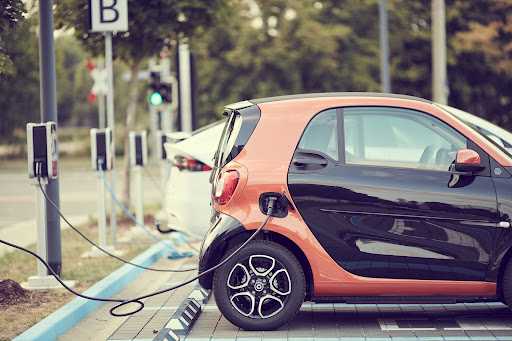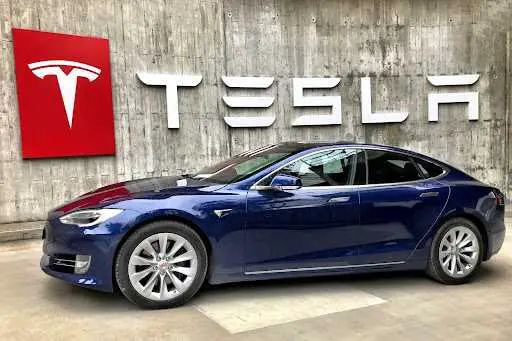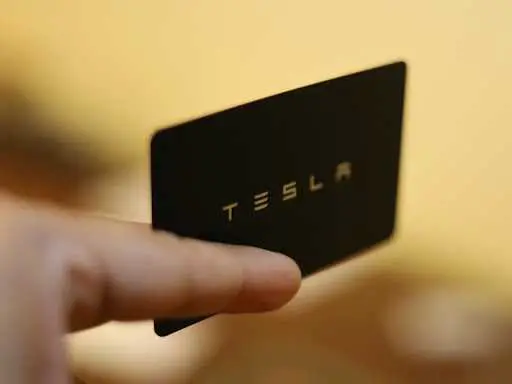Are Electric Cars Good For City Driving?
With global warming and air pollution threats to the earth, electric cars are getting more popular among those who care for the environment. The EV ranges have increased significantly through the years, and they’ve become more functional. The question is, are electric cars good for city driving?
Electric cars are good for city driving because they’re quiet, energy-efficient, have mileage within the daily commutes range, and have higher ranges in the city than highways due to regenerative brakes. However, infrastructures and charging stations in cities need to grow, and charging time should decrease.
Read the rest of this article to learn more about electric cars, their pros and cons, and whether they fit into city life or not. We’ll take a closer look at the challenges cities may face in adopting large numbers of electric cars.
Are Cities Ready for Electric Cars?
Electric cars can be great for city driving as the trips are short and within their mileage, which relieves the range anxiety of most people. Electric cars are also very quiet, and there’s no trace of fumes or harmful emissions. What’s more, drivers stuck in traffic can take advantage of regenerative brakes.
Because of the regenerative brakes, an EV has a higher driving range in the city rather than on highways. Their electric motor can function in reverse and work as a generator. So, when an electric car slows down or brakes, its motor uses kinetic energy to generate some power to be fed back to the battery.
What Cities Need to Do
However, infrastructures in cities seem unready for a surge in the number of electric cars in the streets, and the main problem is the lack of charging points or stations even in big cities like New York.
In built-up cities like New York, most people don’t have private parking lots or garages; as a result, home charging isn’t among their options – but suburban drivers can enjoy them more. According to the Department of Energy, there’ only 43,800 EV charging stations in the US compared to 136,400 gas stations.
On the other hand, on-street charging stations or those set up in garages or parking lots are very scarce. And suppose you found a charging station in such a city, finding an empty parking space near that would be another issue!
Another major problem is the charging time. While it may take about 10 minutes to refuel the tank of a regular petrol or diesel car, it would take at least 45 minutes to fully charge an electric car.
Right now, you may find charging stations – though with difficulty – but when the EV fleet increases in numbers, we’ll see cars in line waiting to charge up, which indeed takes a lot of time and space. While adopting higher megawatt chargers can significantly decrease the charging time, supplying them may be problematic.
Another question about electric cars is whether the US power grid can handle large numbers of them or not.
Experts agree that the power grid can feed millions of electric cars, but it requires careful planning and building more power plants or infrastructures. For example, California, which has the most EV charging stations in the US, is fed mainly by solar power.
If all its residents plug in their electric cars at once to charge up overnight, the city will run into significant issues for supplying enough electricity. One possible solution is to provide schedules by utilities so that all EVs won’t charge up at once.
Pros and Cons of Electric Cars
Electric cars have a lot to offer but also have their own shortcomings. Some of these disadvantages are the main reason people are still wary of purchasing an EV.
Pros
Environment-friendly
The first and foremost advantage of an electric car is its share in contributing to our planet’s health. Entirely electronic vehicles have zero tailpipe emissions, making them greener and cleaner alternatives to diesel or petrol cars.
On the other hand, hybrid cars have a small battery and electronic motor coupled with a fuel-efficient diesel or petrol engine. If you drive a hybrid vehicle in electric mode, its tailpipe emissions would be zero. Besides, their range in electric mode is 30 miles which falls within the daily driven distance in the US (29.2 miles per day).
Quieter and Smoother Driving
Driving an electric car is a very comfortable and enjoyable experience because its engine is much quieter than a regular car. In fact, they’re so quiet that some producers are embedding sound generators to make sure the pedestrians and others are aware of their presence.
Electric cars have instant torque, which means you can always control their power. Hitting the accelerator, you’ll get an instant increase in speed.
Besides, the batteries in electric cars are hidden inside their floor, providing excellent balance and distributing the weight evenly. So, handling them at turns and curves is much better and reliable.
Easy, Fast Charging
You can charge up an electric car at home by installing a compact home charging unit outside. It’s cost-efficient, fast, and will make you eligible for government grants to cover the installation costs.
Charging your electric car while it’s parked outside is as easy as charging a mobile phone, and you can do it any time, regardless of weather conditions. Most electric cars use a 7kW home charging port, and in about 5-10 hours, they’ll be fully charged and ready to go.
Besides, there are rapid chargers that can speed up your EV’s charging process. They can charge most electric cars up to 80% within an hour!
Cheaper Maintenance
Although electric cars’ price is almost similar to their petrol or diesel counterparts, their maintenance cost is much lower in the long run. For instance, consider government grants, tax incentives, better fuel efficiency, fewer maintenance requirements, and lower cost of electricity.
As you see, you may spend much less on an electric car than a regular petrol or diesel car. Electric cars are designed to be as efficient as possible.
They’ve got three main components for powering: inverter, on-board charger, and motor. This arrangement entails less wear and tear and less stress on its motor because fewer moving parts will be susceptible to damage. So, you’ll need to service your electric car less often, and its repair cost wouldn’t be high.
Moreover, people usually charge their cars overnight to be ready for the day’s use, so the used electricity will be calculated at a lower unit rate than the day. Your electricity will cost approximately one-tenth of petrol or diesel.
Cons
Charging Points
The biggest shortcoming of electric cars is probably charging them up. All electric cars come with a three-pin domestic plug that enables you to charge the car via the mains; many firms also provide fast-charging wallboxes for free when you buy an electric car.
However, this wallbox should be connected to your main power supply to charge your car faster than the supply fed to your home. Therefore, you should find somewhere close to an electrical supply to park your vehicle.
But most people hardly ever use their garages for parking their cars, and many don’t have off-street parking, especially in built-up areas. What’s more, a large portion of the population live in rented accommodations – and more importantly, a lot of them live in apartments.
Such problems limit their ability to install domestic charging points. Carmakers like Tesla are trying to help with this issue by creating a network of Supercharger stations that offer fast-charging – only for Tesla models.
Nissan and Renault also offer on-site fast-charging for their EV owners, but you must be lucky to be near one of these sites, usually located on the outskirts of main cities.
Another option is signing up to charging schemes like Instavolt, Ecotricity, Polar EV Network, or Pod Point. They give you access to dedicated parking lots – on-street and parking garage – and charging points.
Charging Time
You can’t recharge your EV whenever needed, like you would refuel a regular car. You should treat it more like a smartphone and have some prior planning to charge it whenever possible – especially overnight. In this way, you’ll always have enough battery life to get to your destination.
Battery Range
The battery range is one of the main things that scares most people of the idea of driving an electric car – range anxiety. They usually fear that they might not get to their intended destination without recharging the car or being unable to charge up their EV once they get there.
Currently, the normal range of most electric cars is around 150-200 miles, but manufacturers hope the next generation will have a range of approximately 300 miles after one charge.
Price
Although electric cars are good investments in the long term, their purchase price is relatively high. They’re usually about $10k more expensive than their petrol or diesel counterparts. Although governments award grants to encourage people to buy electric cars and reduce their costs, they’re still costly.
Driving Joy
Although driving electric cars is a quieter experience, It’s a kind of joy-killer for those who enjoy hearing an engine roar. Besides, their heavy batteries can somehow take away some of the driving fun.
Besides, lack of gearbox and direct drive diminishes the driving thrill and feeling, so many people doubt buying an EV.
Final Thoughts
Electric cars are the future; they’re green, energy-efficient, very comfortable, and offer high ranges for daily drives in the city. Meanwhile, there are problems in the infrastructures of cities that show they’re not so ready for the adoption of EVs. Charging stations are rare, and finding parking spaces in densely-settled cities is challenging. Despite it all, EVs are good for city commutes and can save you a lot in the long term.
Amazon and the Amazon logo are trademarks of Amazon.com, Inc, or its affiliates.




